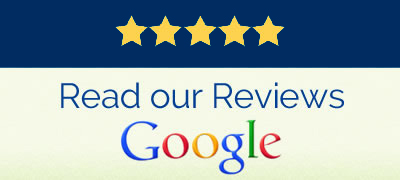Shield Insurance Blog | No-Fault | Auto Insurance | Start A Quote Today!
When it comes to auto insurance, understanding the different types of coverage can be overwhelming. Two commonly confused terms are “no-fault insurance” and “personal injury protection (PIP).” While they may seem similar, there are distinct differences between the two. In this blog post, we will unravel the jargon and debunk some misconceptions surrounding these coverages. Read on to learn more about the benefits, advantages, and FAQs related to no-fault and personal injury protection.
No-Fault vs. Personal Injury Protection Explained:
No-fault insurance and personal injury protection are often used interchangeably, but they are not exactly the same. No fault insurance refers to a system where each driver’s insurance company pays for their own medical expenses and damages, regardless of who caused the accident. On the other hand, personal injury protection (PIP) is a specific type of coverage that provides additional benefits beyond medical expenses, such as lost wages and rehabilitation costs.
No-Fault Insurance Misconceptions:
One common misconception about no-fault insurance is that it means no one is at fault for the accident. However, this is not the case. No fault insurance simply means that each driver’s insurance company covers their own expenses, regardless of fault. Another misconception is that no-fault insurance eliminates the need to file a lawsuit. While it is true that no-fault insurance reduces the need for litigation, there are still situations where legal action may be necessary, such as in cases of severe injuries or disputed liability.
Personal Injury Protection Myths:
There are also several myths surrounding personal injury protection. One myth is that PIP coverage is only necessary for high-risk drivers. In reality, PIP coverage can benefit anyone involved in an accident, regardless of their driving history. Another myth is that PIP coverage duplicates health insurance. While there may be some overlap in coverage, PIP can provide additional benefits that health insurance may not cover, such as lost wages and household services.
Personal Injury Coverage:
The main difference between no-fault insurance and PIP coverage lies in the scope of benefits. No-fault insurance typically covers only medical expenses, while PIP coverage extends to other costs, such as lost wages, funeral expenses, and rehabilitation services. PIP coverage also varies by state, with some states requiring a minimum coverage amount, while others offer optional higher limits.
No-Fault Insurance Benefits:
No-fault insurance offers several benefits to policyholders. Firstly, it provides prompt payment for medical expenses, reducing the need to wait for a liability determination. Secondly, it eliminates the need to prove fault, simplifying the claims process. Lastly, no-fault insurance can help reduce the strain on the court system by resolving minor accident claims more efficiently.
Personal Injury Protection Advantages:
PIP coverage offers additional advantages beyond medical expenses. It provides coverage for lost wages, allowing injured individuals to maintain their financial stability while recovering. PIP coverage also includes benefits for essential services, such as childcare and housekeeping, which may be necessary during the recovery period. Additionally, PIP coverage can help cover funeral expenses in the unfortunate event of a fatal accident.
Insurance Coverage FAQs:
1. Is no-fault insurance mandatory in all states?
No, not all states require no-fault insurance. Some states have traditional fault-based systems, where the at-fault driver’s insurance pays for the damages.
2. Can I have both no-fault insurance and PIP coverage?
Yes, in states where both are available, you can have both no-fault insurance and PIP coverage. However, it is important to review your policy to understand the specific benefits and limits of each coverage.
3. Does PIP coverage apply to passengers in my vehicle?
Yes, PIP coverage typically extends to passengers in your vehicle, regardless of who is at fault for the accident.
Unraveling Insurance Jargon:
Understanding insurance jargon can be challenging, but Shield Insurance Agency is here to help. As an agency representing over 40 insurance companies, we have the expertise to guide you through the complexities of auto insurance. Contact Shield Insurance Agency at (616) 896-4600 for a free quote today or start the quoting process by visiting this LINK, and an agent will be in touch soon.
No-fault insurance and personal injury protection may sound similar, but they have distinct differences in coverage. No-fault insurance refers to a system where each driver’s insurance company covers their own expenses, while PIP coverage provides additional benefits beyond medical expenses. Understanding these coverages, debunking misconceptions, and unraveling insurance jargon is crucial for making informed decisions about your auto insurance. Remember, Shield Insurance Agency is here to assist you in finding the right coverage for your needs.
More Blogs from Shield Insurance Agency





























































